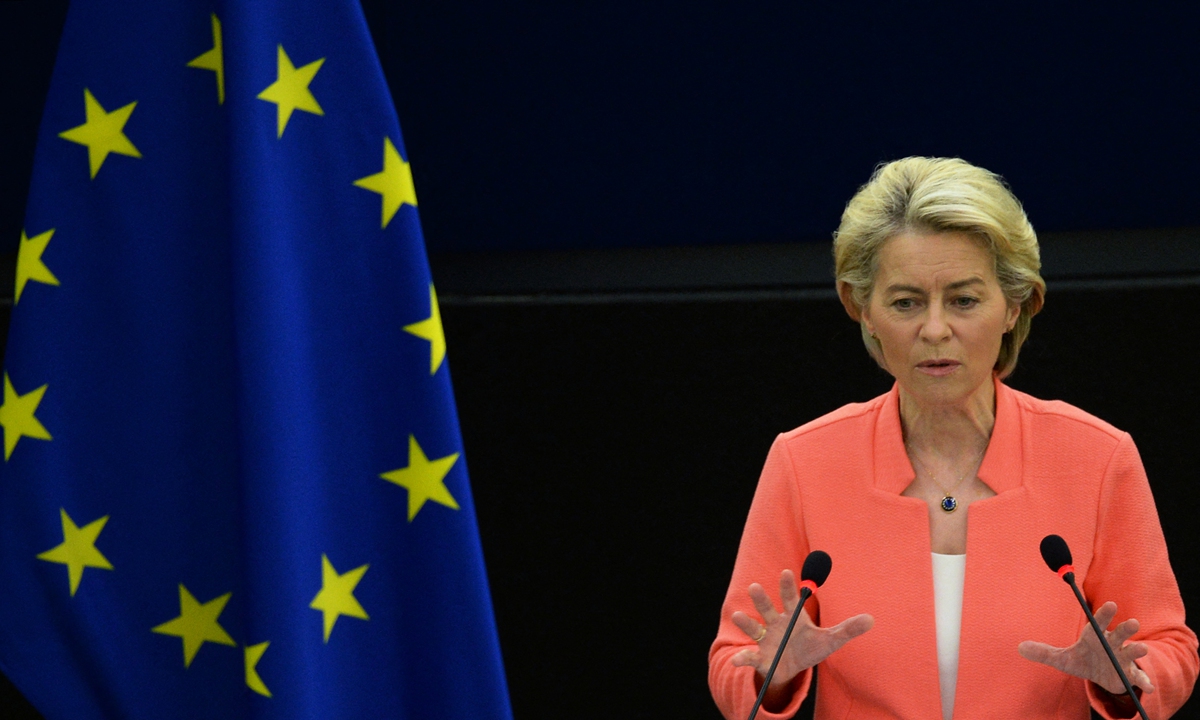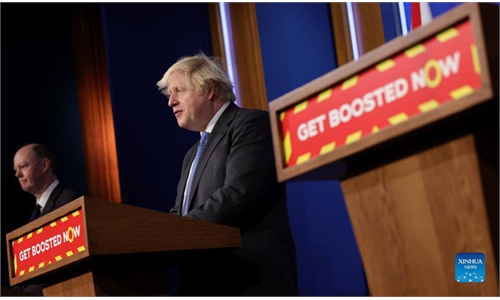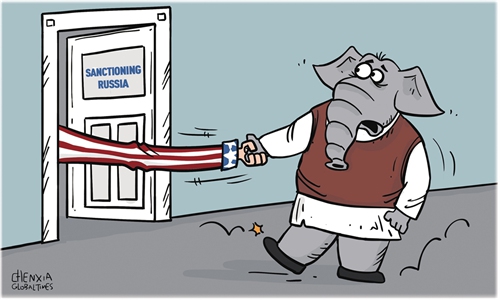Von der Leyen, Johnson to visit India, but Modi not expected to give up independent stand on Ukraine

European Commission President Ursula von der Leyen. Photo: AFP
European Commission President Ursula von der Leyen will visit India on April 24 and 25, the Indian Ministry of External Affairs announced on Tuesday, which will be her first visit to India since taking office.
Von der Leyen's visit was announced following UK Prime Minister Boris Johnson, who is also scheduled to visit India this week and plans to take the opportunity to encourage Indian Prime Minister Narendra Modi to distance India from Russia.
Chinese experts said the same lobbying will likely be the main topic of von der Leyen's visit to India. The EU would also like to push forward Western strategies and talk about trade in the face of a shaken global economy.
The core purpose of the EU and UK leaders' visits to India is to lobby India to alienate Russia and join the US and Europe in sanctions against Russia, Lan Jianxue, a South Asia expert at the China Institute of International Studies, told the Global Times on Wednesday.
But there is a good chance that the expectations of these Western leaders will be dashed, as the Modi government has been maintaining a more independent foreign policy, Lan said.
Analysts said the US-led West has previously made efforts to exert influence to India on the Russia-Ukraine issue. US officials have traveled to India to lobby, and Japan and Australia have offered India big trade deals, but none of them has reached their goal.
"India has signaled to the world during the UN vote that regardless of its closer security and economic ties with the US and the West, it will stand alone as far as choosing sides are concerned," B. R. Deepak, a professor at the Center of Chinese and Southeast Asian Studies in New Delhi, told the Global Times.
India wants to maintain its diplomatic independence, Lan said. "This is not only because it wants to profit from its relationship with Europe, the US and Russia, but also because India wants to maintain its image as a 'great power' rather than a 'fence-sitter' that could change its position at any time because of external forces."
India and Russia have a long relationship that goes back to the time of the USSR, which has only been strengthened in the past few decades. India has also been importing large numbers of weapons from Russia, which is difficult to pivot away from, Vijay Prashad, an Indian scholar and Executive Director of Tricontinental: Institute for Social Research, told the Global Times in an earlier interview.
In the Russia-Ukraine conflict, India is one of the non-directly interested parties that have benefited the most, observers noted.
India has won the space for independent diplomacy, but this could become a double-edged sword, Qian Feng, director of the research department at the National Strategy Institute at Tsinghua University, told the Global Times.
As tension grows, India is coming under greater pressure due to its "independent" policy, and the situation may end up being unpleasant for both, Qian said.
Pulling India together is something that the entire Western camp is concerned about, Cui Heng, an assistant research fellow from the Center for Russian Studies of East China Normal University, told the Global Times. "It's not only about Russia, but also because India is an important part of what they see as a way to contain China."
"The US used to sink the Soviet Union this way. There is a policy inertia," he said. "Yet a growing number of countries, including India, are proving that this policy is not a panacea. Many countries can maintain an independent position."
"India's position is part of a global tendency - from South Africa to Brazil - of countries keen to revive a non-aligned platform," Prashad told the Global Times.


